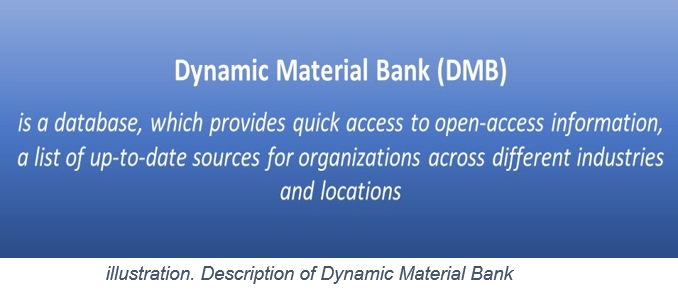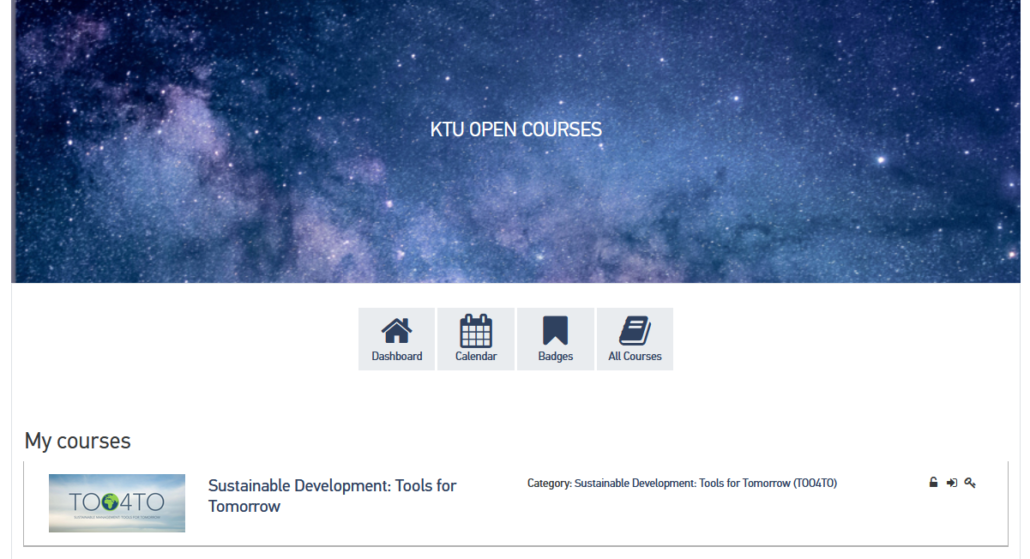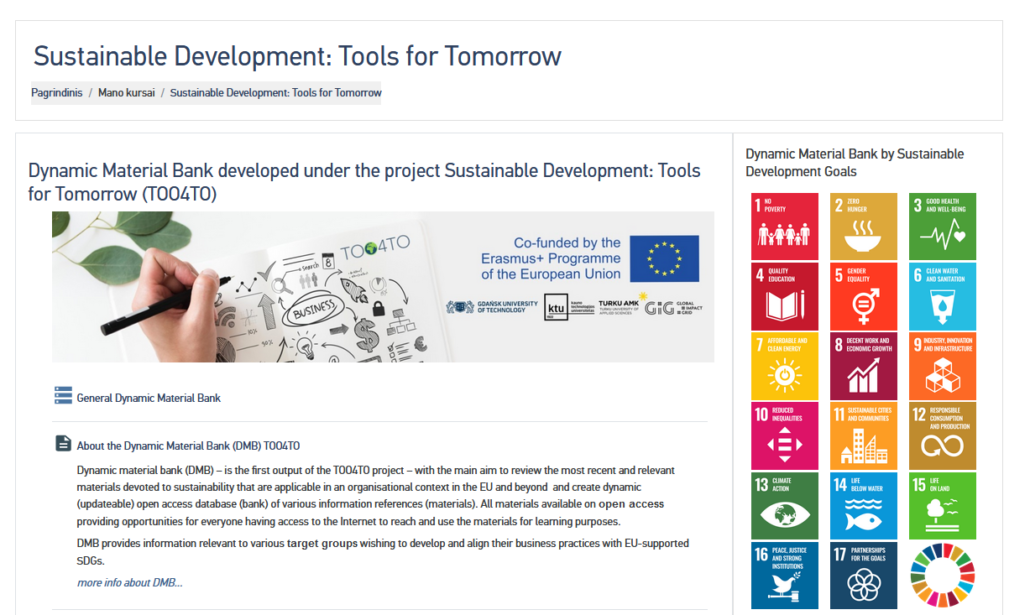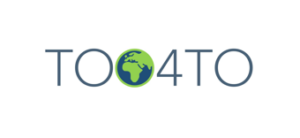The Launch of Dynamic Material Bank for Teaching, Learning and Practicing Sustainability
After one year of intensive work, the result of “TOO4TO” project Intellectual Output 2 (IO2) – Dynamic Material Bank (DMB) (see illustration) – is already prepared and opened for public use since October (2021). It provides information relevant to various target groups wishing to develop and align their business practices with EU-supported SDGs educational institutions (teachers of higher education; students), business representatives, decision makers, researchers.

Currently, the database can be easily accessed via the TOO4TO project website (click here) or www.open.ktu.edu. While preparing the database, there was a close collaboration with Kaunas University of Technology (KTU) IT department experts as the database is delivered through the KTU Moodle system. The construction of the curriculum is built on interdisciplinary and collaboration needs. The preparation process involved not only project partners, but also students and lecturers from different scientific fields and countries. The main information about the Early Development phase and general results of students’ and lecturers’ surveys is provided in the blog post “Dynamic Material Bank for Teaching, Learning and Practicing Sustainability. Early Development“. As a result, the DMB material is classified under six themes which appeared to be most appealing for students and lecturers:
- Corporate Social and Environmental Sustainability
- Sustainable Resource Management
- Climate Change and Sustainability
- Sustainable Energy Solutions
- Circular Economy, Economic and Sustainability, Sustainable Production
- Artificial Intelligence and Sustainability

The material for each theme includes open-access bibliography and active links to various information forms – regulations, policies (EU and global); best practice examples from industry; scientific articles and other scientific publications; software and other tools; reports (global, regional, national or industry level); international research projects (results); updates, insights from the business organizations. Each reference has a connection link identified to the specific UN SDGs or all of them. Therefore, the search of material is based on the sustainability areas, categories, SDGs and key words within the DMB.
Everyone is encouraged to develop a database together. After the launch, project partners, students and all DMB users will be able to make regular updates of the material as the knowledge in sustainability-related matters is not static. Regular updates of all the users will be done in the additional DMB in order all the entries would be reviewed by the administrators (from the technical and thematic point of view) and the periodic updates would be done by the proved and valuable data. Moreover, there will be an opportunity to disseminate, leave recommendations and comments regarding any possible improvements which would increase the usability of the DMB and it’s positive impact as one of the tools oriented to the future of sustainable development. Technical issues regarding the updating and usage are explained in the DMB manual.

As the DMB is created under the Moodle platform, it could be linked to other Moodle courses, and the assignment regarding the updating of the database could be exported to other Moodle courses in different educational institutions.
Further dissemination will be performed by providing link to it via various media. The link can be disseminated further via the databases of libraries and via the newsletter to the interested parties/stakeholders. It can also be disseminated via various social and professional media. Users of DMB are welcome to share the link and information about DMB at their institutions and beyond.
Written by Inga Gurauskienė and Gabrielė Čepeliauskaitė, Kaunas University of Technology


